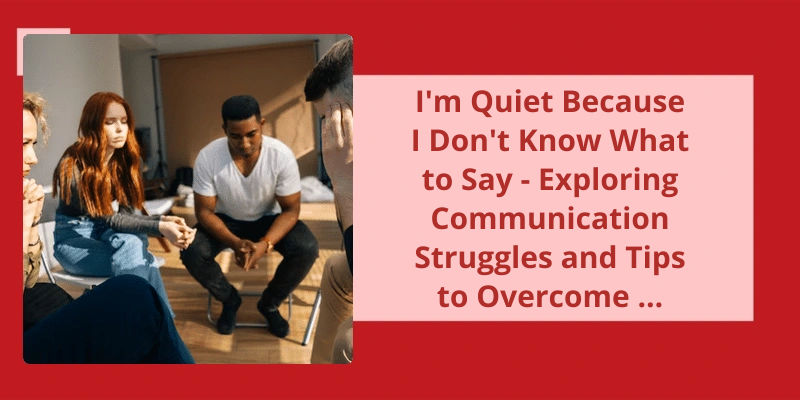The smacking of lips, in particular, is one of the most commonly cited triggers of this condition, causing an intense emotional and physiological response in those affected. The sound itself, created by the movement of the lips and tongue, can cause a great deal of anxiety, anger, and even panic in some individuals.
What Does It Mean When Someone Smacks Their Lips?
Smacking ones lips is a type of nonverbal communication that’s often used to express enthusiasm or satisfaction. This action involves opening and closing the mouth repeatedly in a clipping, smacking sound that’s intended to make a statement or convey a feeling. Individuals may smack their lips in a variety of situations, with various intentions and meanings at the core of the gesture.
They may do so after consuming a delicious meal, witnessing an engaging performance, or engaging in any activity that brings them joy or excitement. At the same time, lip-smacking can also be an indicator of underlying emotions or intentions, such as anger or impatience. For example, someone who’s waiting for service in a restaurant might smack their lips to indicate their frustration and restlessness.
It showcases intimacy and can be an indication of wanting to take a romantic relationship to the next level. In this context, subtle lip-smacking and puckering of lips can be used to signal sexual desire.
It can be a sign of appreciation, enjoyment, impatience, and even sexual attraction. Understanding the underlying emotions and intentions behind this gesture can be a helpful shortcut to decoding the meaning and implications of such actions.
Now that we know why kissing makes noise, let’s explore the reasons behind why we kiss in the first place and the various cultural and societal meanings attached to it. Kissing is a universal practice embraced by all cultures, but it’s origins and purposes may surprise you.
Why Do We Make Noise When We Kiss?
Kissing is an intimate act that can be performed between people of any age or gender. It’s become a cultural phenomenon that’s depicted in movies and literature, and is often romanticized as an expression of love and affection. It’s said that a kiss can convey more than words ever could, and can evoke strong emotions that aren’t easily expressed in any other way. But have you ever wondered why kissing makes a noise?
When we kiss, we make a kissing noise because of the movement of air in and out of our mouths. As our lips relax, they’ll separate slightly leaving room for a small amount of air to be sucked into the mouth. The air that’s drawn in during a kiss, mixed with the sound of the lips meeting, creates the “smack” sound that’s commonly heard. This noise can vary in intensity and tone depending on the pressure, speed and wetness of the kiss.
It’s something that’s been romanticized throughout history, and has become an important part of our cultural understanding of intimacy and affection. So the next time you hear the sound of a kiss, take a moment to appreciate the intimate bond that it represents.
While many of us may find certain sounds annoying, for some individuals, the reaction is much more severe. The sound of lip smacking, in particular, can trigger a complete fight or flight response for those with misophonia. This condition affects people whose brain is wired differently, making them extremely sensitive to certain sounds. In this article, we’ll explore in more detail what misophonia is and what causes it.
Why Is Lip Smacking Annoying?
Lip smacking isn’t only annoying but can be downright frustrating, particularly for those who experience misophonia. This neurological condition causes people to exhibit an extreme reaction to certain sounds, including lip smacking. For many, the sound of lip smacking can even trigger a fight or flight response, which can be incredibly unsettling and difficult to manage.
When someone is eating or drinking and smacking their lips, the sound is much louder and more pronounced than if they were further away. This can cause a sense of discomfort and annoyance, particularly for those with misophonia.
When someone is constantly making a smacking sound, it can be difficult to tune it out or ignore it. This can create a sense of irritation that can build over time, particularly if the smacking continues for an extended period.
While it may be difficult to completely eliminate the annoyance of lip smacking, recognizing why it bothers us can help us to better manage our reactions and responses.
Now that we’ve a clearer understanding of what smacking means in slang, it’s important to note that this behavior can have negative consequences on individuals and relationships. Smacking can erode trust, create animosity, and damage reputations. In the next section, we’ll take a closer look at the harm that smacking can cause and explore alternatives to this behavior.
What Does Smacking Mean in Slang?
The term “smack” is a slang expression that’s often used to describe the act of criticizing someone behind their back. This type of behavior is typically seen as negative and hurtful, as it involves talking about someone in a negative way without their knowledge or consent.
It’s also important to remember that words can have a lasting impact, and the effects of smack talk can linger long after the words have been spoken.
Ultimately, the best way to avoid engaging in smack talk is to treat others with kindness and respect. If you’ve a problem with someone, it’s often better to address the issue directly with them rather than talking about them behind their back. By striving to be a positive influence in the lives of those around you and refraining from engaging in negative behavior, you can help to create a more positive and supportive community.
Source: smack – slangwall
Now that we’ve a clear understanding of the different definitions of smacking, let’s delve deeper into the origins and interpretations of this word. While some may use it synonymously with kissing, others may view it as a physical act of striking. The connotations and implications of using this word can vary greatly depending on the context and the speaker. So, let’s explore the nuances of smacking and how it’s been used in language and culture throughout history.
Does Smacking Mean Kissing?
The word “smack” can have multiple meanings depending on the context in which it’s used. One common use of the word is to describe a quick, sharp sound, such as the noise made when someones lips come together after a kiss. In this sense, smacking doesn’t necessarily mean kissing, but rather refers to the sound that can be made when someone kisses with a bit of force.
For example, someone might say that they “smacked” their partner on the lips to indicate that they gave them a quick, playful kiss. Similarly, the phrase “smack on the lips” is often used to describe a kiss that’s given with a bit of force or enthusiasm.
For example, someone might smack a ball with a bat, or a parent might smack their child as a form of discipline. In these cases, the word has a very different connotation than when it’s used to describe kissing.
As with many words in the English language, it’s important to consider the broader context of a sentence or paragraph in order to determine it’s intended meaning.
Whether youre writing a love letter or simply trying to understand the meaning of a particular phrase, taking the time to consider the broader context can help ensure that you fully understand the intended message. By paying attention to the language being used, you can avoid confusion and communicate more effectively with those around you.
Conclusion
The extreme aversion to specific noises, such as lip-smacking, can cause significant distress and impact quality of life. While it may be tempting to dismiss these individuals as simply having a pet peeve, it’s important to recognize the seriousness of the condition and work to increase awareness and understanding. By doing so, we can create a more inclusive and supportive society for all.






